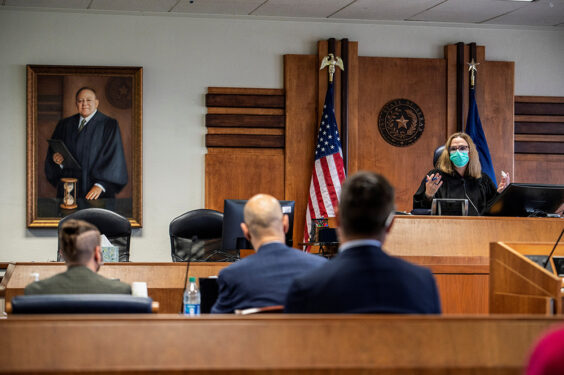
By Kate Scanlon
(OSV News) — Republican Gov. Greg Abbott signed legislation June 3 banning certain types of medical or surgical gender reassignment procedures in Texas for minors who identify as transgender.
Senate Bill 14 prohibits procedures and treatments for children in Texas “for gender transitioning, gender reassignment, or gender dysphoria and on the use of public money or public assistance to provide those procedures and treatments.” It is scheduled to go into effect Sept. 1.
Supporters of prohibitions on gender transition surgeries or hormones for minors who identify as transgender say such efforts will prevent them from making irreversible decisions as children that they may later come to regret as adults. Critics of such bans argue that preventing those interventions could cause other harm to minors such as mental health issues or physical self-harm.
A 2022 study by the UCLA School of Law Williams Institute found that there are approximately 1.6 million people in the U.S. ages 13 and older who identify as transgender, with an estimated 300,000 of that population who are minors.
The Texas Catholic Conference of Bishops did not immediately respond to OSV News request for comment on Abbott’s approval of the bill. It previously wrote on social media that it supports SB 14.
“We acknowledge (and) affirm that all human beings have an inherent dignity, and that God created each person male or female; therefore, sexual difference is not an accident or a flaw — it is a gift from God,” the conference wrote in a May 15 tweet.
In a statement criticizing several bills passed by the Texas Legislature during its recent session, the American Civil Liberties Union of Texas said SB 14 “bans the only evidence-based care for gender dysphoria for transgender people under 18 and aims to strip doctors of their medical licenses for providing their patients with the care they know to be medically necessary.”
Ash Hall, a policy and advocacy strategist at the ACLU of Texas, said in a statement that “Abbott and his political allies rammed through an unconstitutional slate of anti-LGBTQIA+ hate that will make our state less safe, less free, and less fair.”

“Texans of all backgrounds traveled from across the state to oppose these vicious attacks on our civil rights and individual liberties,” Hall said. “Rather than listening to their constituents, state officials responded with repeated attempts to silence our communities, even resorting to prejudice and violence.”
In guidance on health care policy and practices released March 20, the U.S. Conference of Catholic Bishops’ Committee on Doctrine opposed interventions that “involve the use of surgical or chemical techniques that aim to exchange the sex characteristics of a patient’s body for those of the opposite sex or for simulations thereof.”
“Any technological intervention that does not accord with the fundamental order of the human person as a unity of body and soul, including the sexual difference inscribed in the body, ultimately does not help but, rather, harms the human person,” the document states.
Several Catholic dioceses also have begun grappling with pastoral approaches to gender dysphoria. The Diocese of Sioux Falls, South Dakota, issued in 2022 new guidelines for transgender youth directing diocesan schools to demonstrate “conformity with the student’s biological sex as determined from conception and manifest at birth and at the time of the student’s enrollment.”
The Diocese of Des Moines, Iowa, issued in January guidance and policies on ministering to people experiencing gender dysphoria. It called for coherence with the church’s teaching on the inseparability of gender from biological sex while emphasizing pastoral compassion for children or adults experiencing conflict between their biological sex and gender.
Likewise, the Archdiocese of Portland, Oregon, issued a 17-page teaching document called “A Catholic Response to Gender Identity Theory” from Archbishop Alexander K. Sample that same month, which also outlines the catechesis and pastoral guidelines for the archdiocese.
